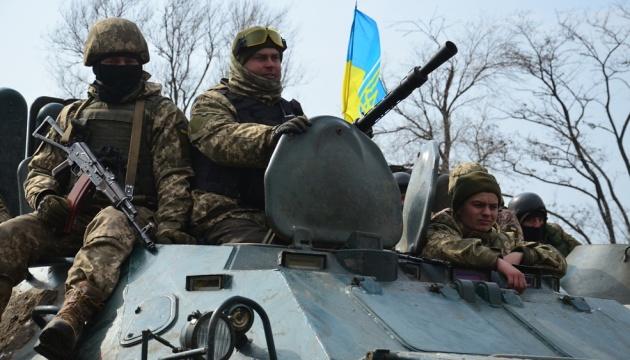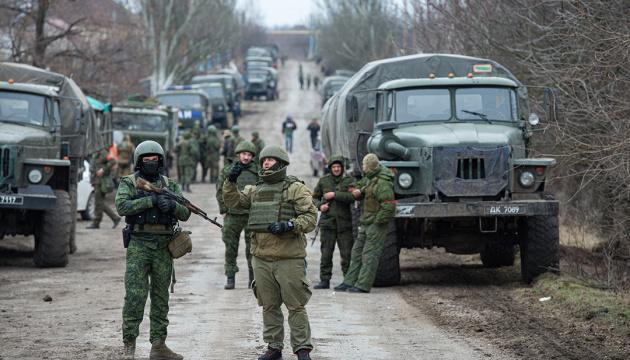"Neither Ukrainian nor Russian societies ready for peace" Interview with Yuriy Shevtsov
Caliber.Az presents an interview with Yuriy Shevtsov, a Belarusian analyst, and the Director of the Center for European Integration Problems.
- Yuriy Vyacheslavovich, how would you assess the recent tough statement of the High Representative of the European Union for Foreign Affairs and Security Policy Josep Borrel on the necessity of the military solution to the Ukrainian crisis? What does it mean?
The statement itself means that the European Union is determined to solve the Ukrainian crisis by force. However, I think we have to wait a bit to see further developments. It is possible that Borrell will reconsider his opinion, given that this is an unprecedented statement. It may simply be a reservation or an ill-considered statement. However, even if we assume that this was a reservation or, maybe, an emotional phrase, in any case, it illustrates the real attitude of the European Union toward Russia today. Obviously, a very sharp aversion to Russia emerged in the EU after the outbreak of war in Ukraine. I assume that they see a high probability of the defeat of Ukrainian troops in eastern Ukraine in the next month or two. I assume that Europe is preparing to start supplying heavy military equipment to Ukraine and deepen the crisis against Russia.
- How long do you think the war in Ukraine could last?
The military operation in eastern Ukraine, which is expected in the near future, will most likely take two months. Maybe more. There are a hundred thousand Ukrainian troops there, and that's the most combat-ready part of the Ukrainian army. Therefore, military action in this direction could last a long time.
However, I would like to focus on another problem. Ukraine has almost failed the sowing season. Of course, they will try to sow crops, but it will be very difficult, and I do not even know how they will cope with this problem after the battles in the east of the country are over.

- In your opinion, what could be the outcome of the battles in this direction?
Most likely, Russia will win this battle. Then the war will shift to central Ukraine. Most likely, Ukraine will fail the harvest season in July and the sowing season in August. It is possible that the humanitarian crisis by the end of the year will be much larger in Ukraine than it is now. With the fact that now, according to the UN estimates, Ukraine already has more than 11 million refugees, of which 4.5 million have left Ukraine, and more than 7 million are inside Ukraine. So, by the end of the year, the number of refugees will increase, both internally and externally. Accordingly, regardless of the course of hostilities, a huge humanitarian disaster is expected in Ukraine by the end of the year. Ukraine will enter the winter with great problems. It will be a very difficult winter.
- Will the massive food crisis affect not only Ukraine but also Europe and other countries of the continent?
Yes. A number of countries in the world are very dependent on supplies of wheat and other products from Ukraine and Russia. Foremost, it is Egypt, some countries in the Middle East, and Africa. There is a huge crisis hanging over these countries, not only with supplies of finished products from Ukraine and Russia but also fertilizers, because they go to international markets from Russia, Belarus, and Ukraine. Today, these supplies have dropped dramatically. This means that crops will fall because of the shortage of fertilizers.
Another problem is related to the supply of fuel and lubricants. Since there has been a sharp rise in the world price of oil products, agricultural lubricants prices will rise as well.
The third problem is related to the supply of seeds. Ukraine has a huge problem with seeds. Even before the crisis, there was little production of seeds and they bought them in the international market.
On the other hand, drought in some countries may cause a lot of problems. It has already been announced that due to the drought, even such a developed Arab country as Morocco may face famine by winter.

- Your forecast is very pessimistic. Tell me, should Putin's recent statement about the earliest possible end to the war be considered optimistic?
I believe this is a routine statement. Russia does not refuse to negotiate and has put forward certain conditions. This is Putin's natural statement, but it can hardly be realistic. Until the war in eastern Ukraine is over, it is hardly possible to expect any outcome of the negotiations.
- So this is the only reason that slows down the negotiating agenda?
The problem is that in both Ukraine and Russia, societies are not ready for peace.
- Maybe society is tired of war?
That is not the case. In both Ukraine and Russia, the ratings of the current presidents are enormous. And the public expects victory from both presidents. Ukrainian society, just like Russian, is convinced that they will win. Remember the negative reaction Russian society had to Russian negotiators' hints about the possibility of making peace.
- Apparently, Russia still doesn't fully understand the scale of the coming catastrophe that will affect everyone.
Indeed. Both societies are still determined to go to war. I don't know how long the war will last. I think for a long time. It will all depend on who wins the battles in eastern Ukraine. It will still not stop the deepening humanitarian catastrophe in Ukraine, which means we should hardly expect appeasement.








